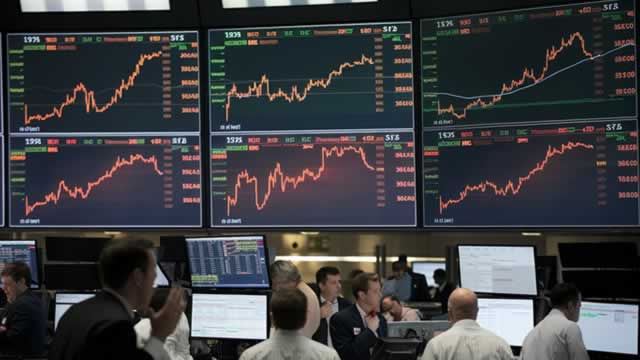Central Huijin Investment Boosts Holdings in China Stocks Amid Trade War Fears
Central Huijin Investment, China’s sovereign wealth fund, announced on Monday its intention to increase holdings in China’s stock market and defend market stability. This statement comes in response to a recent slide in local shares, as investors grow increasingly concerned about the potential impact of an escalating trade war on the Chinese economy.
Background
Central Huijin Investment is a significant player in China’s financial markets, with assets totaling over $900 billion. The fund has previously intervened in the stock market to stabilize prices during periods of volatility. Its latest announcement is an indication of its confidence in the Chinese economy’s ability to weather the trade tensions with the United States.
Impact on China
The Chinese stock market has been under pressure in recent weeks due to the trade war fears. The Shanghai Composite Index has fallen by over 10% since early October, while the tech-heavy ChiNext index has dropped by more than 15%. Central Huijin Investment’s decision to increase its holdings in Chinese stocks is likely to provide a boost to the market, at least in the short term. However, the long-term impact of the trade war on the Chinese economy remains uncertain.
- Central Huijin Investment’s intervention could stabilize the Chinese stock market in the short term.
- The trade war could lead to a deep recession in China if it escalates further.
- The Chinese government is taking measures to support the economy, including tax cuts and increased spending on infrastructure projects.
Impact on the World
The trade war between the United States and China has the potential to impact global markets significantly. Central Huijin Investment’s decision to increase its holdings in Chinese stocks could have ripple effects on other markets, particularly those that are heavily influenced by Chinese economic activity.
- A deep recession in China could lead to a slowdown in global economic growth.
- The trade war could result in higher prices for consumers in the United States and Europe due to increased tariffs on Chinese goods.
- Other countries, particularly those that are heavily reliant on exports to China, could also be negatively impacted by the trade war.
Conclusion
Central Huijin Investment’s decision to increase its holdings in Chinese stocks and defend market stability is a sign of confidence in the Chinese economy’s ability to weather the trade war. However, the long-term impact of the trade war on both China and the global economy remains uncertain. Investors should closely monitor developments in the trade war and the Chinese stock market, as both could have significant implications for their portfolios.
In the meantime, individuals and businesses should consider diversifying their investments to minimize their exposure to any one market or economy. This can help mitigate the potential risks of economic volatility and provide a more stable foundation for long-term financial planning.





